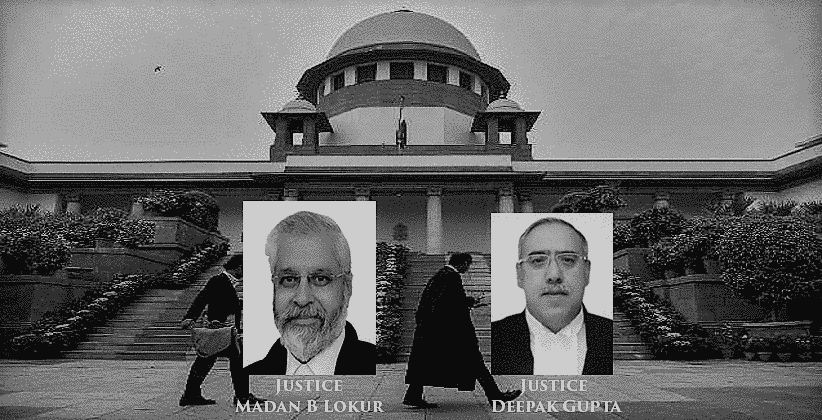The Supreme Court today i.e., December 11, 2018, has imposed an absolute bar on media from disclosing the names and identities of victims of sexual assault by taking into consideration the provisions in the Indian Penal Code, 1860 and the Protection of Children from Sexual Offences (POCSO) Act, 2012.
The judgment was delivered by JusticesMadan B Lokur and Deepak Gupta on a PIL filed by Advocate Nipun Saxena relating to the protection of the identity of survivors.
The Bench after deliberation on the question of interpretation of Section 23 of the POCSO Act, 2012, and Section 228A of the IPC, 1860 both of which prohibit the publication of names of victims and Section 3 of the Contempt of Courts Act, 1971 said that the media cannot disclose the identity of the victims to the public in any manner.
The Bench observed that victims of sexual offences are treated as untouchables and are often ostracised. Moreover, the victims were often treated as though they were at fault.
The Bench imposing a restriction on media from talking to the victims said that the media not only has the right but also the duty to report on crime but the same should be done in a sensitive manner without sensationalizing such cases.
In order to protect the identity of the victims, the Bench barred the uploading of FIRs filed in rape cases and under POCSO Act, 2012, on websites. Any reports from FSL laboratories or those to be submitted to the Court must be submitted in sealed covers, the Bench held.
In addition to the name of the victim, even remote details that can result in disclosing the identity of the victim must be protected, and should not be put in the public domain, the Bench further held.
The Bench also ordered that identity of rape victims, who have died, should not be disclosed even if the parents of the victim consent to the same.
On the rehabilitation of victims of sexual assault, the Bench directed for setting up of one-stop centres in each district within a period of one year.









